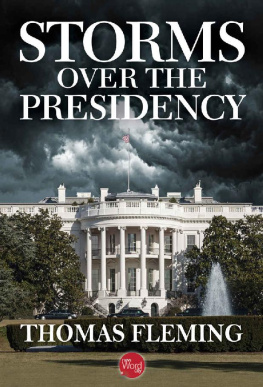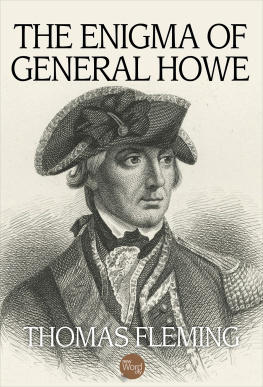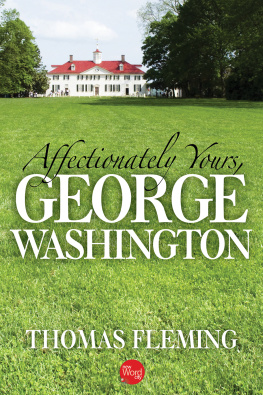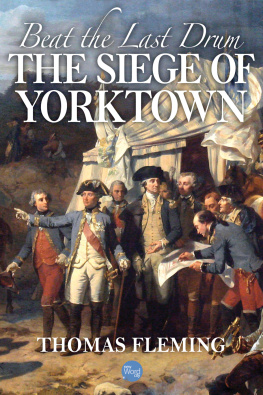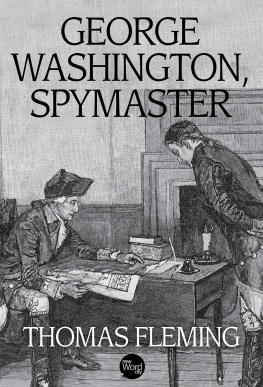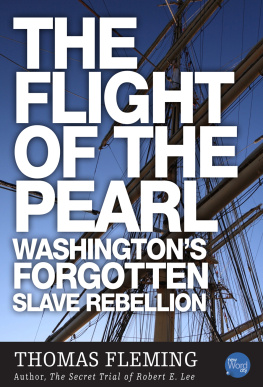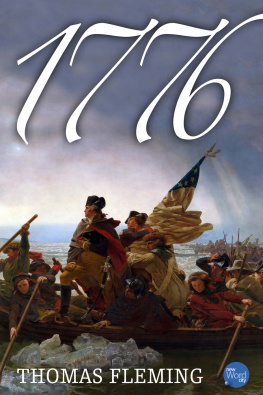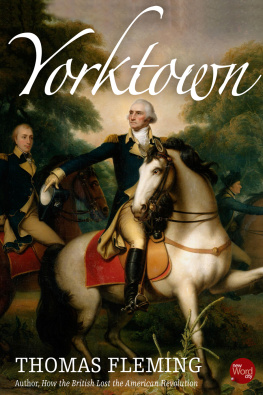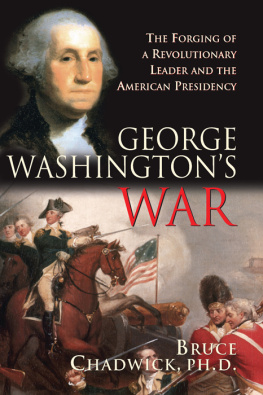Screaming mobs swirled through the streets of Philadelphia, the nations capital, threatening to drag the president of the United States out of his house and hang him for refusing to go to war. The president was none other than George Washington, the Father of his Country, the idol whose election had passed the Electoral College without a single dissenting vote only four years before.
Liberty, fraternity, howled the rioters, who were inspired - and possibly paid - by an ambassador of the French Republic, smiling, ruthless Edmond Genet. In Paris, he and his friends had guillotined King Louis XVI, the man who helped us win the Revolution. Power mad and blood drenched, Frances new rulers attacked their old enemy, England, and called for a war of all peoples against all kings. They sent thirty-year-old Citizen Genet to the United States to make sure America got the message.
Against him - almost alone, it seemed at first - stood President George Washington. While sympathizing with the French Revolution, he knew that France had provoked England to war and saw no reason for the infant United States, still burdened by its Revolutionary War debt, to relinquish its strict neutrality.
Washington knew that many Americans did not agree with him, including Secretary of State Thomas Jefferson, the very man who had to enforce the nations neutrality. Rather than it [the French Revolution] should have failed, Jefferson wrote to a friend, I would see half the earth depopulated.
Citizen Genets reception in the United States made the worst seem imminent. He was greeted in Charleston, South Carolina, like a conquering hero. He proceeded to act more like viceroy than foreign diplomat. He recruited American sailors and ships as privateers with authority to attack and destroy English shipping and authorized French consuls in American ports to distribute the spoils. With the eager connivance of local Francophiles, he began organizing a French Army of the Mississippi to assault Spanish possessions in Florida and Louisiana. With another group, he discussed an invasion of Canada. Traveling to Philadelphia by land, Genet went from ovation to ovation. He left behind him a trail of Democratic Societies patterned after the Jacobin clubs in France - not very different in their aims and ambitions from the Communist cells the Soviet Union encouraged in the twentieth century to support their goal of world domination.
In the midst of this uproar, President Washington issued a national proclamation of neutrality that made it clear to all citizens that they were liable to fines and arrest if they assisted either of the belligerent powers. When Genet finally presented his credentials, some five weeks after he had entered the country, the president received him with frigid politeness.
Immediately the pro-French press, led by Philip Freneau, a Jefferson protg, swung into vituperative action. Let me caution you, sir, Freneau fulminated, redeem yourself in the eyes of your people. He pictured Washington as lulled by an opiate of sycophancy and warned him that the presidency was temporary - implying that there might be a guillotine waiting on the day Washington ended his term, or sooner.
Encouraged by Freneau, other columnists were even more vicious. Their reckless propaganda sent pro-French mobs storming through the streets and raised fears for the presidents safety. But the rioters did not have the courage to strike at Washington directly. They contented themselves with attacking the house of Alexander Hamilton, the presidents chief supporter.
At one Cabinet meeting, an angered Washington spoke bitterly of the journalistic abuses of Philip Freneau. He would, said he, rather be in the grave than in his present posture. He would rather be a farmer than the emperor of the world; and he resented that rascal Freneau, who insinuated that his belief in a strong presidency concealed kingly pretensions.
The strain of the situation weakened the sixty-one-year-old presidents health. He ran a fever, and Jefferson, in a hypocritical letter to James Madison, described how poor Washington looked. Washington was extremely affected by the attacks, and Jefferson added that he seemed to feel the continuing newspaper criticism more than any person I ever yet met. This, of course, was what the pro-French Jefferson was hoping to see.
Genet, meanwhile, was pirouetting around, gathering more ovations and founding more Jacobin clubs. I live in a round of parties, he wrote home. Old Man Washington cannot forgive my success.
But Old Man Washington knew exactly what he was doing. Shrewdly, he had already acquired an intelligence report on Genet from Gouverneur Morris, the United States Ambassador to France. Genet had a weakness - a tendency to run off at the mouth. Washington, who had a habit of keeping his own mouth shut, waited for Genet to make the first wrong move.
He did not have to wait long. Genet now had the effrontery to outfit the captured British ship, Little Sarah, as a privateer while she lay at anchor in Philadelphias harbor. Even Jefferson had to protest such bald defiance of Americas laws. Genet replied with contempt, When ready, I shall despatch her. This he did a few days later.
Washington replied by taking personal charge of the fledgling State Department. He revoked the diplomatic standing of the French consul in Boston who had been flouting the proclamation of neutrality. In a virulent speech, Genet threatened to appeal over the presidents head to the sovereign Commonwealth of Massachusetts. This was the moment Washington had awaited. Would the people of the United States support their president or a foreign diplomat? Coolly, Washington helped them to make up their minds; he let Supreme Court Chief Justice John Jay leak to the press some of the insulting remarks Genet had made about Old Man Washington.
A torrent of indignation swept over Edmond Genet. City after city held public meetings and forwarded testaments of loyalty to Washington. The French were asked to recall their floundering favorite. At this, Genet panicked. A revolutionary flip-flop had catapulted his enemies to power in Paris, and he was a prime candidate for the guillotine. But when Genets successor arrived in Philadelphia with orders for the fallen idols arrest, Washington was too big a man to hold a personal grudge. He refused to extradite Genet, and the man who thought he was destined to rule America faded gratefully into obscurity.
Surveying the wreckage, Louis Otto, charg of the French legation, wrote, The French agents have always wished to see only two political parties in the United States, the French Party and the English Party. But there is a middle party, far more numerous, composed of the best men of both. This party, whose existence our agents have not even suspected, is the American Party, which loves its country above all.

When Thomas Jefferson became president of the United States in 1801, he was still an admirer of the French Revolution and a fervent friend of France. Shortly after he took office, a French diplomat visited him and asked if he would object to France sending an army to St. Dominique [present day Haiti] to restore this portion of the island of Santo Domingo to the French empire. The tons of sugar produced by its slave population had once made it the most valuable colony in the French empire. But during the French Revolution, the slaves had revolted and set up their own government, ruled by a talented black man, Toussaint LOverture.

